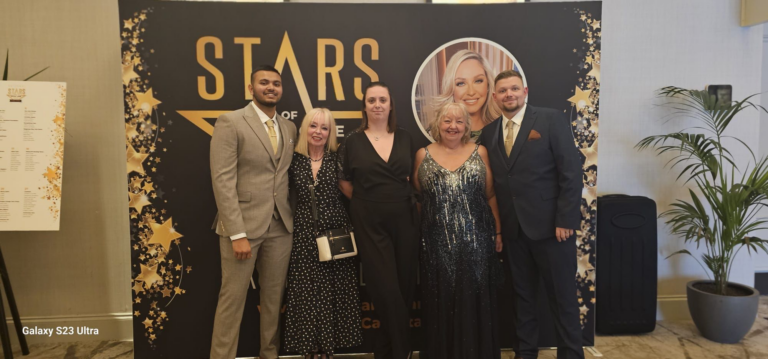Mayfield House care home in Crewe, Cheshire, celebrated its 25th anniversary in August.
Anne Littleton, owner and Director of Care at the home, has shared her thoughts on how the business of care has changed over that time.
“Caring for people has changed immensely in many ways through research, training, technology, and attitudes,” she said.
“We have moved away from the institutional ways of delivering care to a person-centred approach, with respect and dignity being at the forefront. For example, single bedrooms have been improved from dormitory style accommodation with privacy screens to private facilities.
“Families and loved ones are more involved to ensure the care is individual to that person’s particular needs.
“Increased quality of care has not just been due to accommodation improvements and training, but has resulted from a shift in staff attitudes, quality of management and society. Although I believe this has improved, I also believe we still have some way to go to ensure it is happening in all cases.”
Mrs Littleton noted the change in attitudes to mental health, dementia, and Alzheimer’s disease over the years. She said: “It is no longer seen as a stigma and the care associates have a greater knowledge and understanding of the disease and how to treat individuals. This has mainly been achieved by research and training. At the beginning of my career, it was focused on health and not so much on mental health, as the holistic approach was nonexistent.”
The Care Act in 2015 put people and their carers in control, raising expectations and standards. Mrs Littleton added: “The latest change in CQC inspections is the inclusion of the KLOES (Key Lines Of Enquiry), which in my opinion is a fairer guide to what is expected and what can be achieved.”
Mrs Littleton, who has worked in the care sector for 45 years, opened Mayfield House in 1997 and started Acacia Training in 2000 with George Littleton and her two daughters, due to the lack of quality training available for the care sector.
She said the role of the Registered Care Manager has particularly changed over the years, adding: “Managers now must have a variety of skills and training, not only in care but in leadership and business.
“I am sure managers over the last 25 years had these skills, but through technology, training, internet and various groups, I believe their role has improved and, with access to the right training, they now possess many new skills to cope with the demands made of them.”
Technology has also played a big part in transforming the care sector. “Skype and Facetime has allowed residents to communicate on a more interactive level with friends and family than ever before – maintaining a sense of connection to families and wider community,” said Mrs Littleton.
“We have also recently installed a new digital care management and planning system developed for care and nursing homes. It will help us to digitally transform our business and achieve the highest standards of compliance and care delivery. Technology has led to more exciting opportunities.”
Overall, Mrs Littleton believes the care sector has a bright future. She said: “Better trained staff, more robust policies and procedures, improved communication between multi-disciplinary teams, and statutory regulations ensure a safer and more improved resident experience.”



